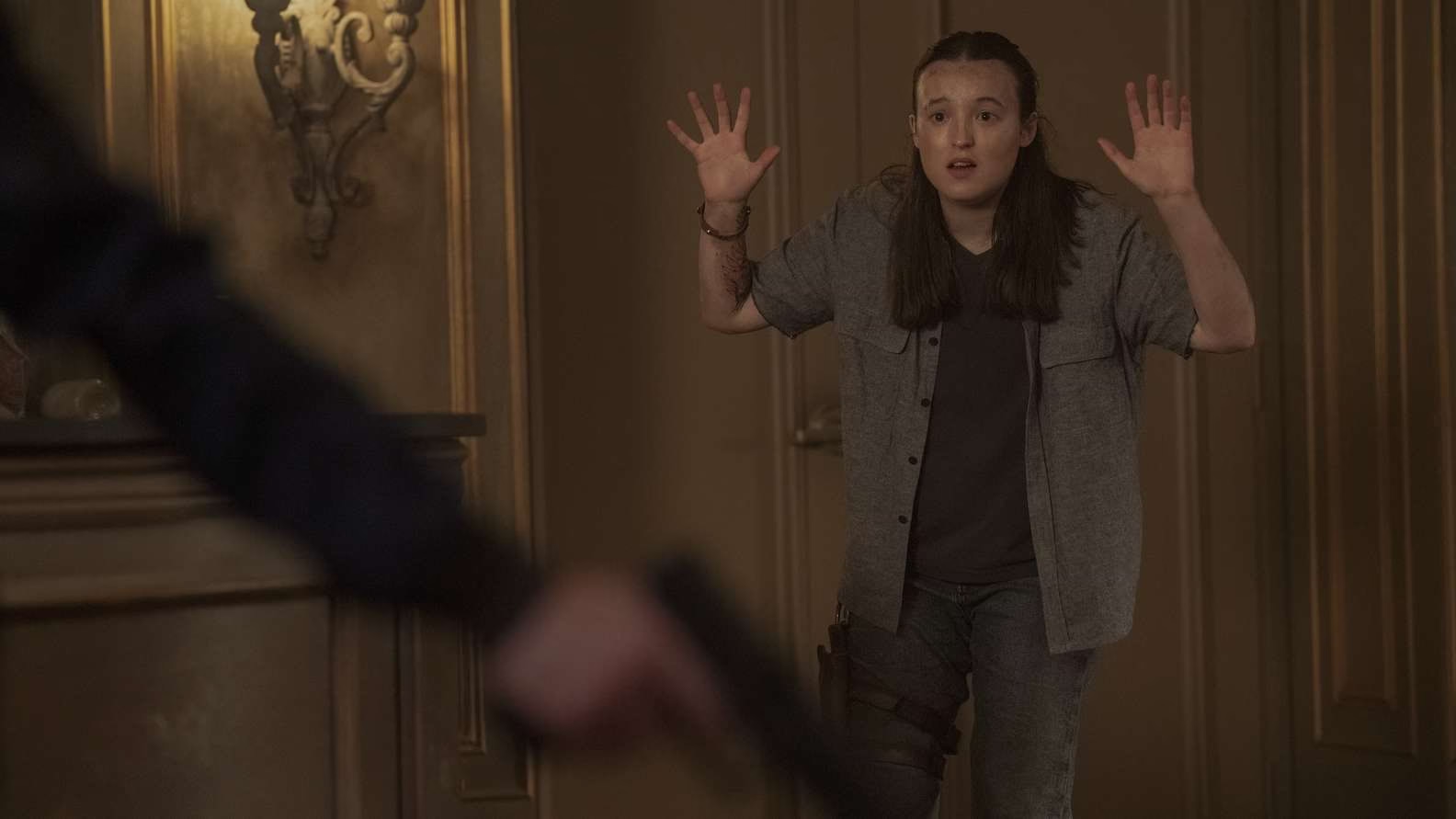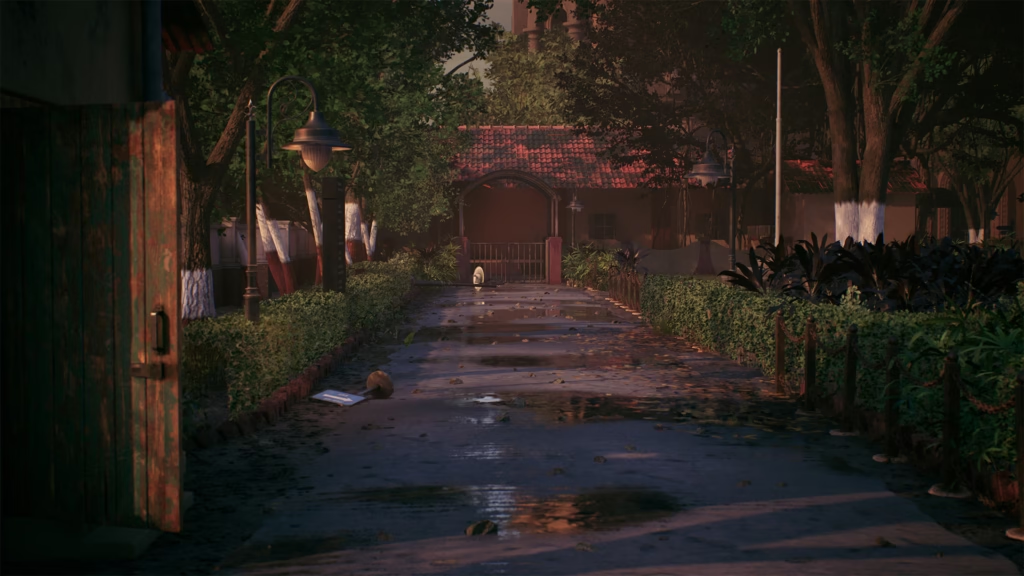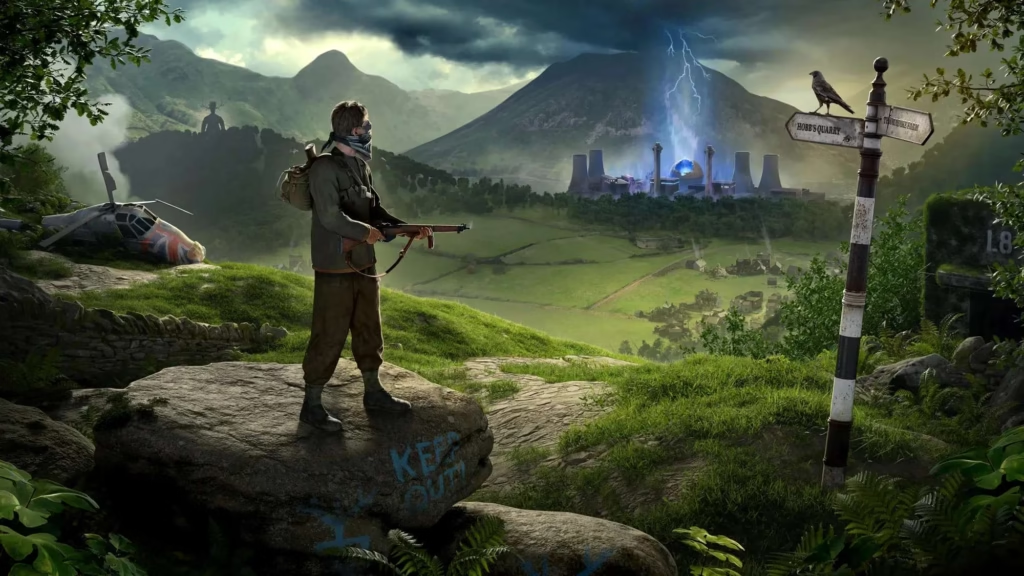The second season of HBO‘s The Last of Us came to a close this week having racked up a rather peculiar seven episodes in total. Maybe it’s just me, but there’s something about seasons without a round number of episodes that doesn’t quite sit right. Dunno why. Anyway, with the key beats of 2013’s iconic The Last of Us videogame squeezed into nine episodes, it always seemed like the (arguably bloated) second game would require at least twice that number to cover all of it. Particularly if the show was to follow the narrative form espoused by the game (more on this later). But, seven episodes are what we got, and proceedings expectedly ended on quite the cliffhanger.
From console to TV
Adaptations are a tricky business in film/television because while on one hand, you want to be seen as being faithful to the source material, on the other, you want to tell the story the best way you can considering the medium. For instance, what works wonderfully well in 50 pages of text might not have the same impact on screen, and vice versa. In an ideal world, the people working on a TV/film adaptation would be given a free hand to be as creative as they want with their interpretation of the source material. Alas, it’s not an ideal world we live in.
The times during the first season of The Last of Us that I most enjoyed the show was when it demonstrated a willingness to take liberties with how things happen in the game. The entire episode detailing Bill and Frank’s relationship may have seemed like a luxury when plotting the course for a nine-episode season, but it was a necessary value-add offered by the show. And ultimately, for people who’ve played the game, said value-add is the biggest appeal of the show: To see what they’ve done differently, how they’ve changed things around, and so on.
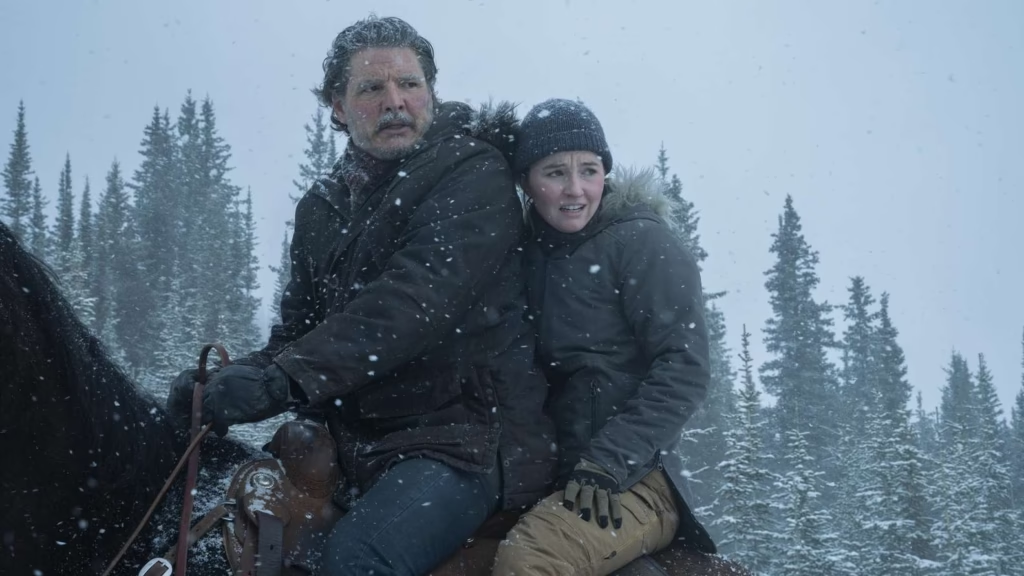
And while I did appreciate the little tweaks and changes made in the first season, the show was by and large a shot-by-shot reproduction of the game. With a larger chunk of material into which to sink their teeth, I’d have expected a few more creative liberties taken this time around. Sadly, apart from introducing a character or two to make the narrative slightly snappier, a plot device or two to make things play out slightly differently, a line or two to give events a slightly distinct feel, and sparing a dog her in-game fate, it all felt very similar to the game. I had truly hoped for larger strides to be taken from out of the shadow of the games this time around. Not least because after the first season, the show had garnered a following of it own that was not necessarily tied to that of the game, and that this was as good a time as any to do things differently. But it was not to be. In the interest of even-handedness, not all the creative liberties paid off, like a certain boat-island sequence from the season finale that had me scratching my head.
Narrative form
While the first game had a fairly linear narrative form (something the show also used), the second is a bit more complex. As anyone who’s played the game will know, the first act sees you play as Ellie, the second has you essay the role of Abby and the less said about the bloated mess that is the third act, the better. In February last year, I had noted for a different publication that how the showrunners juggled the two protagonists would go a long way in defining the show’s success. And this meant perhaps subverting or altogether jettisoning the narrative form of the videogame. After all, one of the joys of the visual media is the ability to splice two stories together (not that videogames don’t do it too) with some deft editing.
As it turned out though, the showrunners decided to play it absolutely safe and mimic the storytelling format of the game. I didn’t have a problem per se with the decision; however, I did find that it lent itself to some odd pacing and rather draggy sections. Considering Abby’s jarring entry (see: being saved by Joel and bludgeoning him to death soon after) into the Last of Us-verse, I’d have imagined that the show might revisit her more frequently to build some empathy for her character. For better or worse, the season finale ends exactly where the first act of the game does — the theatre standoff — and it’s been a largely Ellie-centric season.
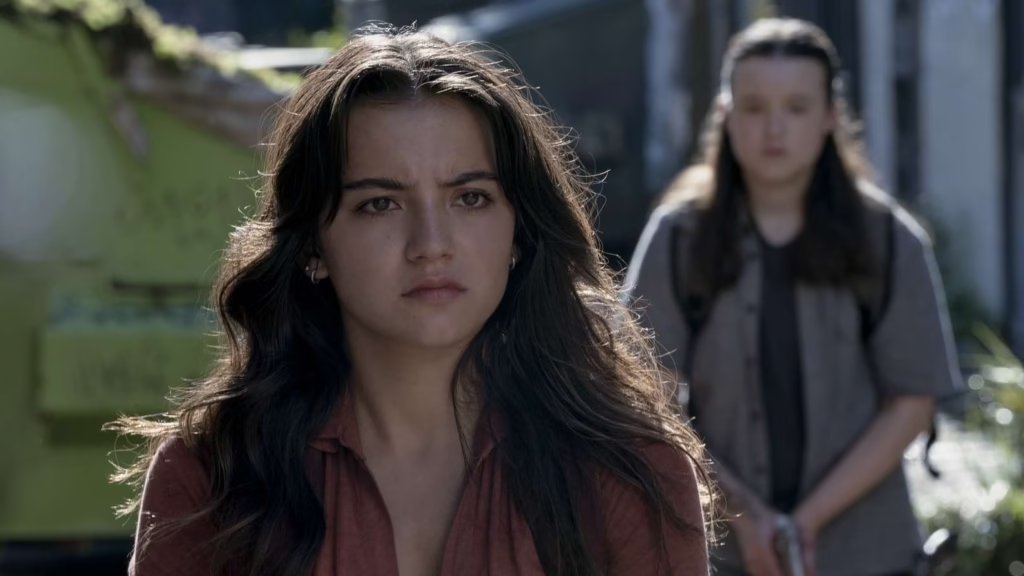
This brings me to the key difference between the two media wherein a similar narrative form is being deployed. Videogames arguably require more patience and attention than TV shows or films. It could theoretically be extrapolated that players are less likely to rage-quit a game than viewers are to give up on a show. In the game, players will need to have spent anywhere between 10 and 12 hours in the story before the narrative focus shifts to Abby. And although, there is anecdotal evidence of players giving up because they refused to play as Joel’s killer, a significant percentage of the gaming population soldiered on with The Last of Us Part II.
As for viewers of the show, it’s worth considering that investment levels are generally lower — whether financial (you aren’t stumping up anything extra beyond the usual streaming service fee), temporal (shows last a lot shorter than games and you can multitask) or emotional (you haven’t had to live the story through your actions). Plus, considering Pedro Pascal’s current blockbuster status, his gruesome death could possibly have come as a dealbreaker to those not especially au fait with the game. HBO‘s penchant for killing off major characters notwithstanding. So with all that in mind, imagine the average viewer discovering that the third season is going to be the Abby story, and it probably won’t be until a fourth season (which could potentially air in 2029) that they find out how this story ends. Flashing back and forth between the two characters is beginning to look pretty good now, am I right?
And everything else…
Whether it was Pascal as Joel, Bella Ramsey as Ellie, Young Mazino as Jesse, Isabella Merced as Dina, Kaitlyn Dever as Abby or Catherine O’Hara as new character Gail, I thought the show got its casting spot on. And this is primarily because, for instance, ‘videogame Joel’ and ‘show Joel’ may superficially be similar, but they are different personalities. For starters, the former is stoic and suffers in silence, the latter is more emotional and expressive.
Also, the little creative liberties taken by the showrunners (as alluded to above) are in line with this version of the characters. Show Abby doesn’t gnash her teeth and flex her muscles as much as her videogame counterpart, but that’s because she doesn’t need to. She is capable of conveying enough menace with her eyes and expressions. It’s the same with Ramsey’s Ellie, who is nowhere near as demonstrative as her videogame counterpart. However, it’s in those moments when she actually emotes that she conveys her pathos magnificently.
Moving swiftly along, while it was a fun task to compare scenes from the show with their videogame counterpart, the novelty wore thin quite swiftly. It was a bit like playing the third or fourth remaster of a game and missing the woods for the trees by sitting and comparing how the two iterations depicted the same thing. In other words, it’s a great academic exercise to examine key differences between game and show, but personally, I found myself wanting to see the story told in quite possibly an entirely different manner. And I strongly suspect that the extremely close hewing to the source material had something to do with game director Neil Druckmann wearing the hat of co-creator (plus director, writer and producer) of the TV show.
Perhaps someone less closely connected to the game would’ve put their own spin on the show and given The Last of Us veterans and newbies alike a unique new take on an established story. I also feel like staying ‘canonical’ with fiction is little more than a marketing catchphrase (or pearls on which to clutch for a certain segment of fans) these days. After all, if you are adapting something to a new medium, why not go try and attempt to reinterpret it and take a few more creative liberties (that play to the medium’s strengths) along the way? I fervently hope the showrunners consider that before embarking on what could potentially be a very divisive third season in which we follow the fortunes of Joel’s killer (if we are not properly introduced to her).
